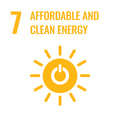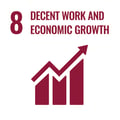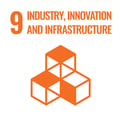FlexiGrid project advances technologies and services to unlock flexibility potential in energy
Spinverse had the pleasure of coordinating FlexiGrid, a 10M€ project which created a data management platform integrating cutting-edge technologies and services. The four-year project has focused on enabling distribution system operators to keep pace with the growth of variable renewable electricity sources. The FlexiGrid project has now come to an end with potential to be replicated, also paving the way for future research and providing input for policy decisions in the future.
Europe’s internal market is undergoing significant transformation due to increasing demands for more energy with a shift towards decentralised generation of energy already taking place. This dynamic landscape with supply fluctuations and increased demand elasticity of the energy system presents operational challenges. They are of concern especially to the approximately 2,350 small- and medium-sized distribution system operators (DSOs) who link the physical electricity system and most market transactions.
The FlexiGrid project, launched in 2019, has been established to develop an integrated architecture that effectively manages energy flexibility. This architecture comprises four key layers: market, ICT, grid and customer. The project was co-funded by Horizon 2020 with 8.1M€ and has had 16 partners from 8 European countries.
Spinverse’s Principal Consultant Magnus Andersson, Senior Consultant Mats Tiborn, Senior Project Manager Linda Rydström, Senior Consultant Ulla Lindberg and Project Manager Frida Barrett supported the project every step of the way from project design, coordination, innovation and communication. “The architecture integrates multiple energy sources and services, a feature that surpasses traditional energy management systems. These include electricity battery storage, electric vehicle charging, demand response and variable generation to create smart grids that can adapt to the dynamic energy landscape while ensuring affordable and secure energy supply,” notes project’s coordinator Magnus Andersson. “The focus has been to develop and test local market mechanisms to incentivise flexibility, particularly to mitigate network congestion and balance local energy needs.”
Testing technologies in demonstration sites
FlexiGrid established testing sites across Bulgaria, Sweden, Switzerland and Turkey, offering the opportunities to validate innovative energy solutions in diverse market conditions, ensuring scalable and replicable project activities. Further, knowledge transfer was also an integral part of the project. Project activities focused on grid monitoring, control and flexibility intervention and local energy exchanges. The project also developed blockchain-based energy services and flexibility measures provided by local energy storage and renewable sources.
Holistic approaches to congestion management
The demonstrated technologies include an IoT platform for distribution grids that integrates data from all demonstration sites as well as a congestion forecast tool and a local flexibility market to ease congestion management.
An eFlex peer-to-peer flexibility trading platform using blockchain technology was also developed. This system helps DSOs to interact with small prosumers to buy flexibility services to manage grid-related issues such as grid congestion and transformer overload.
Other developments within FlexiGrid included the provision of financial roadmap services, an electric vehicle management platform, a control system offering flexibility services for distributed energy resources, and a guide enabling DSOs to implement flexibility services. In the theoretical realm, project partners developed a number of new tools and algorithms.
Making an impact on different areas
By improving the utilisation of the distribution system’s capacity for renewable energy sources, FlexiGrid solutions enhance flexibility and reduce network congestion.
Further, the demonstrated solutions are expected to influence policy decisions and provide valuable case studies for future research. The project ensures the replicability of its solutions to future distribution grids through its financial roadmap services and a step-by-step guide for implementing flexibility solutions. Furthermore, FlexiGrid paves the way for new funding opportunities related to flexibility services, supporting the continued development and deployment of innovative energy solutions.
More information:
https://flexigrid.org/
https://cordis.europa.eu/article/id/449477-advanced-technologies-and-services-unlock-flexibility-potential-in-energy
This project contributes to the following UN Sustainable Development Goals (SDG):




Are you interested in learning more about public funding opportunities in the energy sector? Do not hesitate to contact Spinverse!
Photo: Appolinary Kalashnikova by Unsplash

